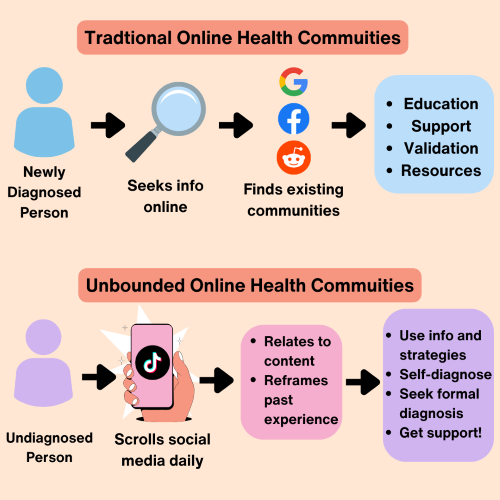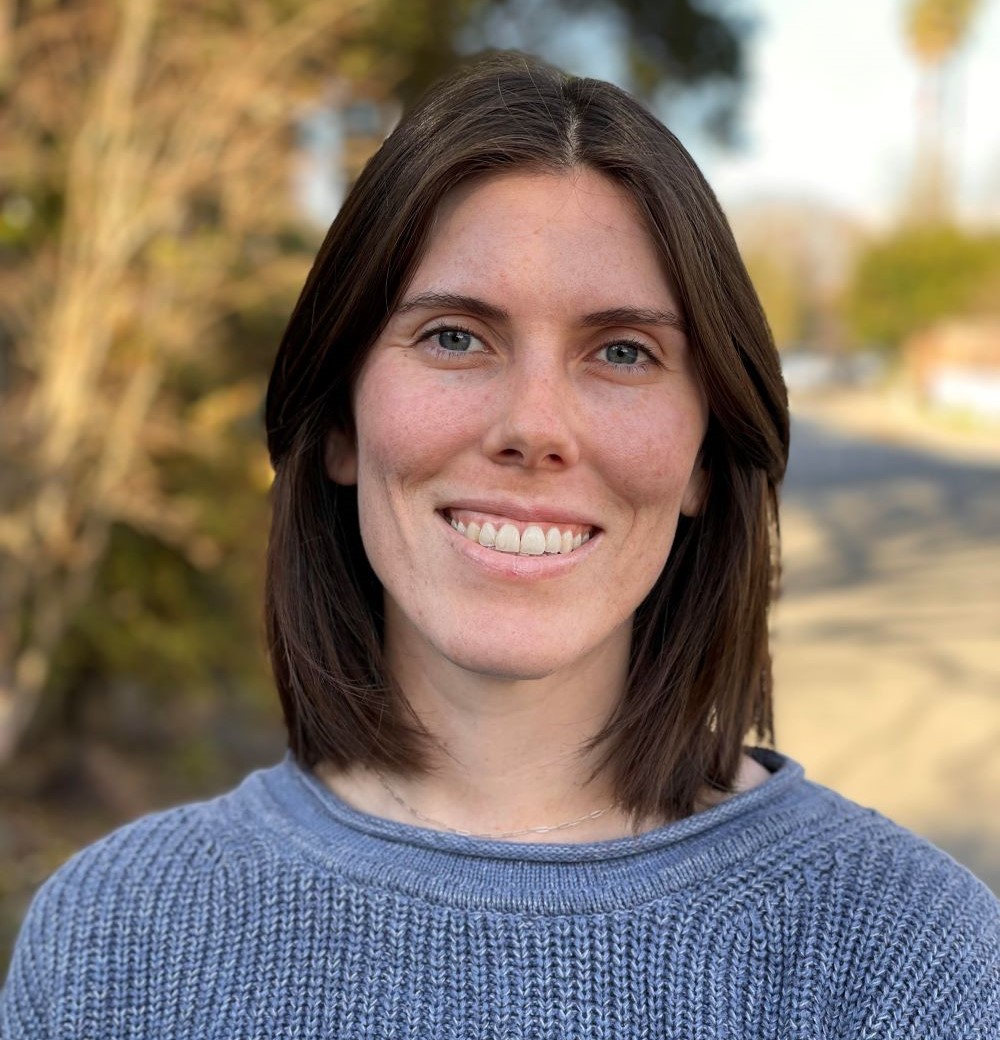Digital Ethnography of ADHD Social Media
Background
Project Year: 2021 - 2023
Full Paper
Objective and Motivation
- Adult ADHD and ADHD presentation in gender and racially-diverse populations is understudied
- Neurodivergence is understudied within HCI
- Technology designed for disabled and ND populations has been historically ableist
Research Question
How does the ADHD community leverage existing social media platforms to provide support previously contained within domain-specific online health communities?
Methods
- Digital Ethnography of ADHD content (photo/video posts, comments/replies) and communities on TikTok, Twitter, and Instagram
- Collection and observation Summer 2021 - Winter 2022
- Coded data inductively
Main Themes
- Discovering ADHD and Navigating Diagnosis
- Navigating a Neurotypical World
- Finding Acceptance and Validation

Proposal: conceptualizing these integrated OHC on open social media platforms as the “Unbounded Online Health Communities’’
- Traditional OHCs provide isolated health-related support and are domain-specific
- Unbounded OHCs = Communities that live on open, algorithmically-driven social media platforms
- Broadens potential membership reach!
Considerations
- Broaden recruitment to include individuals with self-diagnoses and those traditionally excluded from ADHD research
- Consider how to facilitate and promote knowledge sharing outside of medical contexts
- Continual calls to design with neurodivergent communities and listen to what they need
